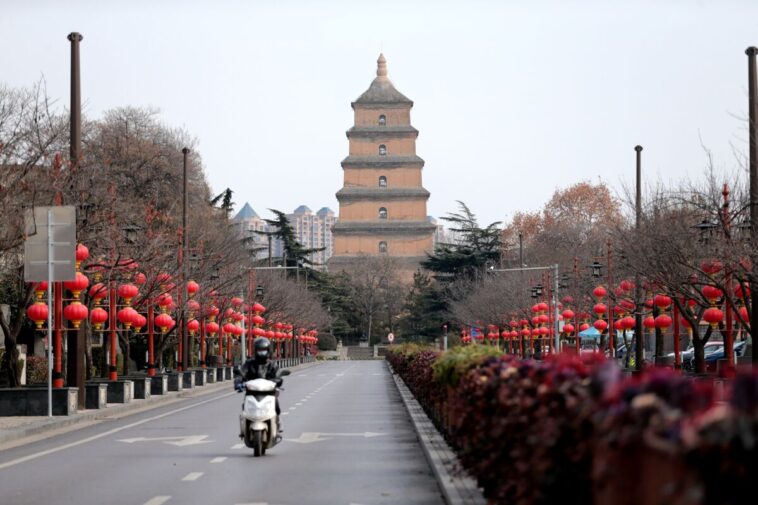Xi’an, China: According to a report, a Chinese city has received negative feedback on social media after suggesting it might contemplate implementing lockdowns in the case of a flu outbreak.
The city of Xi’an, a popular tourist destination in Shaanxi province and home to the world-famous terracotta warriors, unveiled an emergency response plan last week that would enable it to close businesses, schools, and “other congested locations” in the event of a severe flu outbreak.
This resulted in a mixture of fear and anger among many social media users, who claimed the plan uncomfortably resembled elements of Beijing’s zero-Covid policies during the pandemic, which were recently abandoned.
According to a report published by News Channel, someone argued on Weibo, China’s version of Twitter, that it would be preferable to vaccinate the populace rather than incite dread.
Another individual asked, “How would people not panic given that Xi’an’s recommendation to cease business and labour activities was issued without national-level guidance to identify the disease?
Although the number of Covid cases in China is decreasing, the number of flu cases has increased nationwide, making it difficult for some pharmacies to meet the demand for flu medications.
However, the emergency action plan for Xi’an will not always be implemented. Instead, it specifies four severity levels for future epidemics and the city’s response to each.
At the first and topmost level, “the city can seal off afflicted areas, impose traffic quarantines, and halt economic activity.” In addition, malls, theatres, libraries, museums, tourist destinations, and other densely populated areas will remain closed.
At this level of emergency, all schools and institutions would be closed, and they would be responsible for monitoring the students’ and children’s health.
Beijing’s central government has emphasised the importance of reopening the country since all Covid restrictions were abolished in January.
Throughout the pandemic, China has implemented some of the strictest Covid regulations in the world, including months-long lockdowns in certain cities.
It was also one of the last nations in the world to abolish mass testing and protracted border quarantines, despite mounting evidence of the damage done to its economy.
Between December 2021 and January 2022, 13 million people were reportedly imprisoned in their homes for weeks at a time in Xi’an, and many were left without food and other necessities. Also impacted was the accessibility of medical services.
On New Year’s Day, a severely pregnant woman was denied admission to a hospital because she lacked a valid Covid-19 test, startling and exasperating the nation. When she was finally admitted two hours later, she miscarried.
China had faced a number of objections over its zero-Covid policy prior to removing restrictions on the epidemic era.
Many still have vivid recollections of being confined to their homes and engaging in panic purchasing, which led to food shortages in certain regions, so the notion of returning to Covid-style regulations seems to have struck a nerve.
However, numerous voices urged restraint.
Ben Cowling, an epidemiologist at the Faculty of Public Health at the University of Hong Kong, understood the reasoning behind the decision.
Also read: Over 1000 Migrants Were Rescued and Brought Ashore in Italy
“I believe it is reasonable to create fallback strategies. Although there are presumably multiple reaction levels, I do not anticipate that a quarantine will be necessary for the virus,” he stated.
A Weibo user expressed similar sentiments, stating, “It is only the disclosure of a proposition, not its implementation. Given the severity of this influenza epidemic, it is normal to take precautions,” Report.




